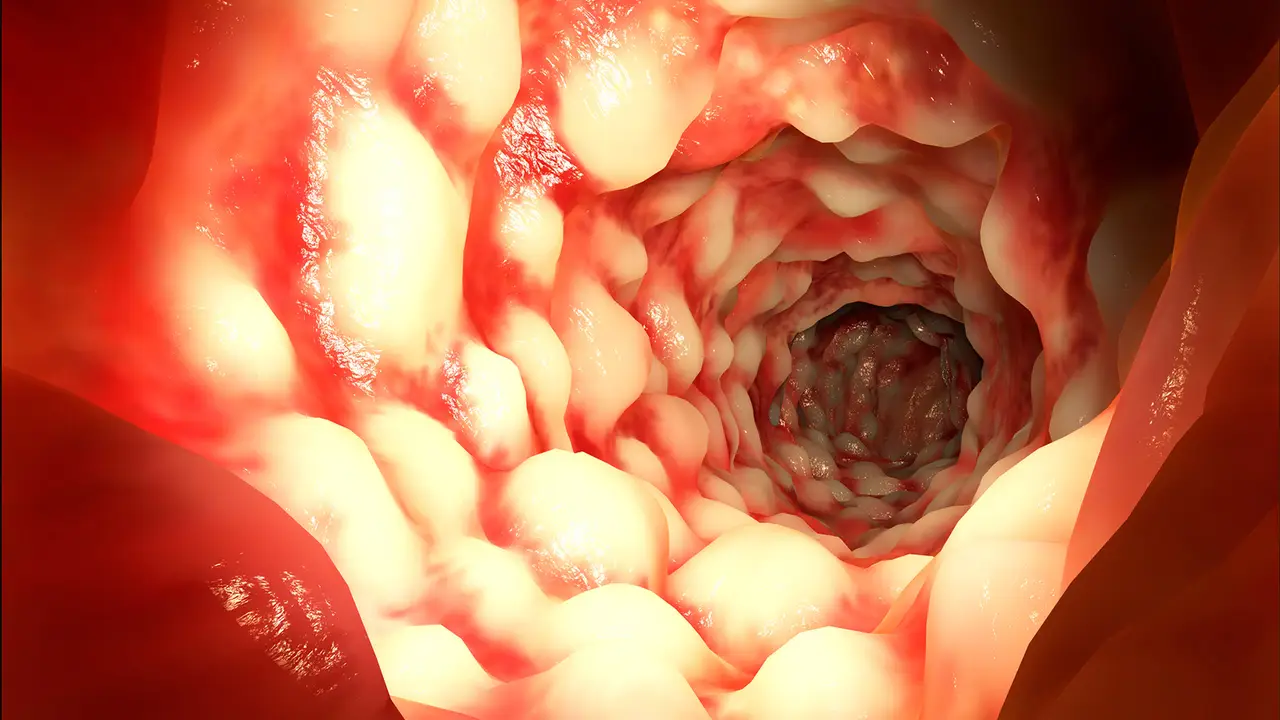
DiYES International School – Crohn’s disease is a chronic inflammatory bowel disease (IBD) that affects any part of the digestive tract. It causes inflammation that can result in painful symptoms. This disease primarily targets the intestines but can also involve the mouth, esophagus, and stomach. While the exact cause remains unknown, various factors contribute to its development. In this article, we will explore the causes, symptoms, and available treatment options for Crohn’s disease.
The exact cause of this condition is still unclear. However, several factors are believed to contribute to its onset. Genetic factors play a significant role. People with a family history of IBD have a higher risk of developing the condition. Research indicates that specific gene mutations are associated with it, making some individuals more susceptible.
Another factor is the immune system. This disorder occurs when the immune system mistakenly attacks healthy cells in the digestive tract. This results in inflammation, which can lead to damage in the affected areas. Environmental factors, such as smoking, also increase the risk. Studies show that smokers are more likely to develop the disease than non-smokers.
Additionally, the microbiome, which refers to the community of bacteria in the gut, is thought to play a role in the development of the condition. Imbalances in the gut bacteria can trigger the immune system and lead to inflammation.
“Read about: Osteochondritis Dissecans: How This Joint Condition Affects Kids and Adolescents”
The symptoms of this condition can vary widely. Some individuals experience mild symptoms, while others suffer from severe, life-impacting issues. The most common symptoms include persistent diarrhea, abdominal pain, and cramping. Many people also experience weight loss and fatigue.
In some cases, patients may notice blood in their stool or experience a reduced appetite. Other symptoms include nausea, vomiting, and fever. Since the condition affects different parts of the digestive tract, symptoms can vary depending on the location of the inflammation. For example, when the small intestine is affected, it may lead to malnutrition or difficulty absorbing nutrients.
Extra-intestinal symptoms are also common. These include joint pain, skin rashes, and eye inflammation. Some individuals may also develop liver problems or kidney stones.
Diagnosing Crohn’s disease involves a combination of medical history, physical examination, and diagnostic tests. A doctor will typically perform blood tests to check for signs of inflammation, anemia, or infection. Imaging tests, such as CT scans or MRIs, can help identify areas of inflammation or damage in the digestive tract.
Endoscopy and colonoscopy procedures are commonly used to examine the inside of the gastrointestinal tract. During these procedures, doctors can take biopsies to confirm the presence of Crohn’s disease and assess the extent of the inflammation.
“Read more: A Taste of Innovation: Mugaritz and Its Bold Approach to Gastronomy in San Sebastián”
While there is no cure for Crohn’s disease, several treatment options are available to manage its symptoms and reduce inflammation. Medications are the first line of treatment. Anti-inflammatory drugs, such as corticosteroids, can help reduce inflammation in the digestive tract. Immunosuppressants, which weaken the immune system’s activity, are often used to prevent flare-ups.
Biologic therapies are another promising treatment. These medications target specific parts of the immune system involved in the inflammatory process. Biologic therapies have been shown to improve symptoms and help achieve remission in many individuals with Crohn’s disease.
In some cases, surgery may be necessary. If medication fails to control the symptoms or if complications such as blockages or abscesses develop, surgery may be performed. Surgery often involves removing damaged portions of the intestine, although the disease may return in other areas.
Dietary changes can also play an essential role in managing Crohn’s disease. A diet rich in nutrients and low in inflammatory triggers may help reduce symptoms. Some individuals find that eliminating dairy, gluten, or high-fiber foods can ease discomfort. Consulting a nutritionist can help create a personalized diet plan.
Living with Crohn’s disease requires ongoing management and lifestyle adjustments. While flare-ups can occur at any time, regular monitoring by a healthcare professional can help control the disease. Support groups and counseling can also assist individuals in coping with the emotional challenges of living with a chronic illness.
Patients may need to adjust their diet, manage stress, and get regular exercise to maintain their overall health. Working with a healthcare team can help improve quality of life and prevent complications associated with the disease.